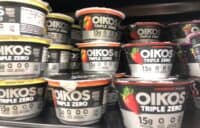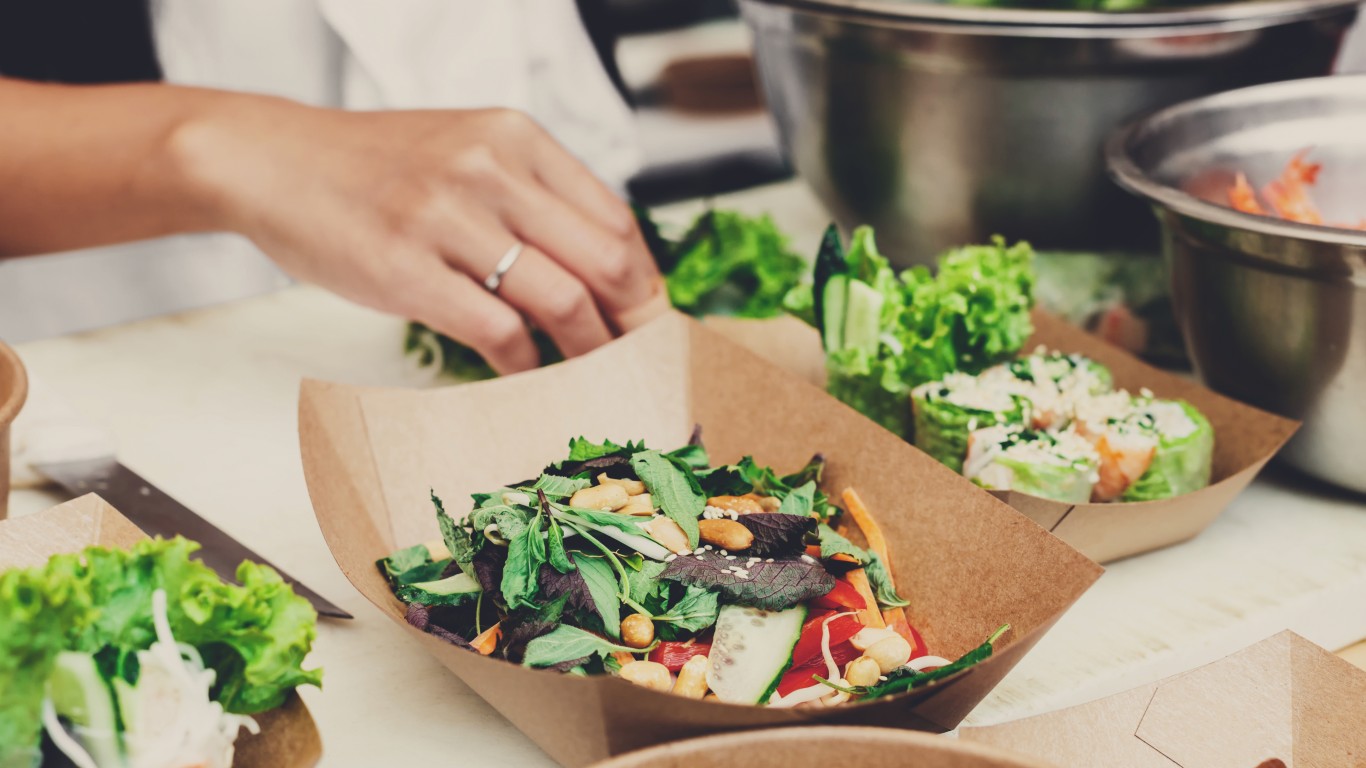
Sometimes putting cold cuts between two slices of bread is more than one can manage on a weeknight, not to mention when the fridge is empty and so is the gas tank. We’ve all been there. Delivery is a modern godsend, especially now that our options extend beyond the standard pizza or Chinese takeout of yesteryear.
There are some things, however, that you might want to think twice about ordering. 24/7 Tempo reviewed health and nutrition articles as well as restaurant employee confessions, and compiled a list of 29 foods that you should never order for delivery.
From listeria outbreaks to cold, sad steaks, and mold in virtually all soda fountain machines, there are many reasons why a little forethought and a homemade sandwich is well worth the effort. So far in 2019 almost every other day a new item is listed on the Food and Drug Administration’s recalls, market withdrawals, and safety alerts page — but these are the 31 absolute worst recalls of all time.
Click here to learn about 29 foods you should never order for delivery
To compile a list of 29 foods that should not be ordered online, 24/7 Tempo considered foods that have a high risk of spoiling if transported over long distances or present a health risk if not kept in a cold container for a long period of time. We also reviewed health and nutrition articles as well as restaurant employee confessions.
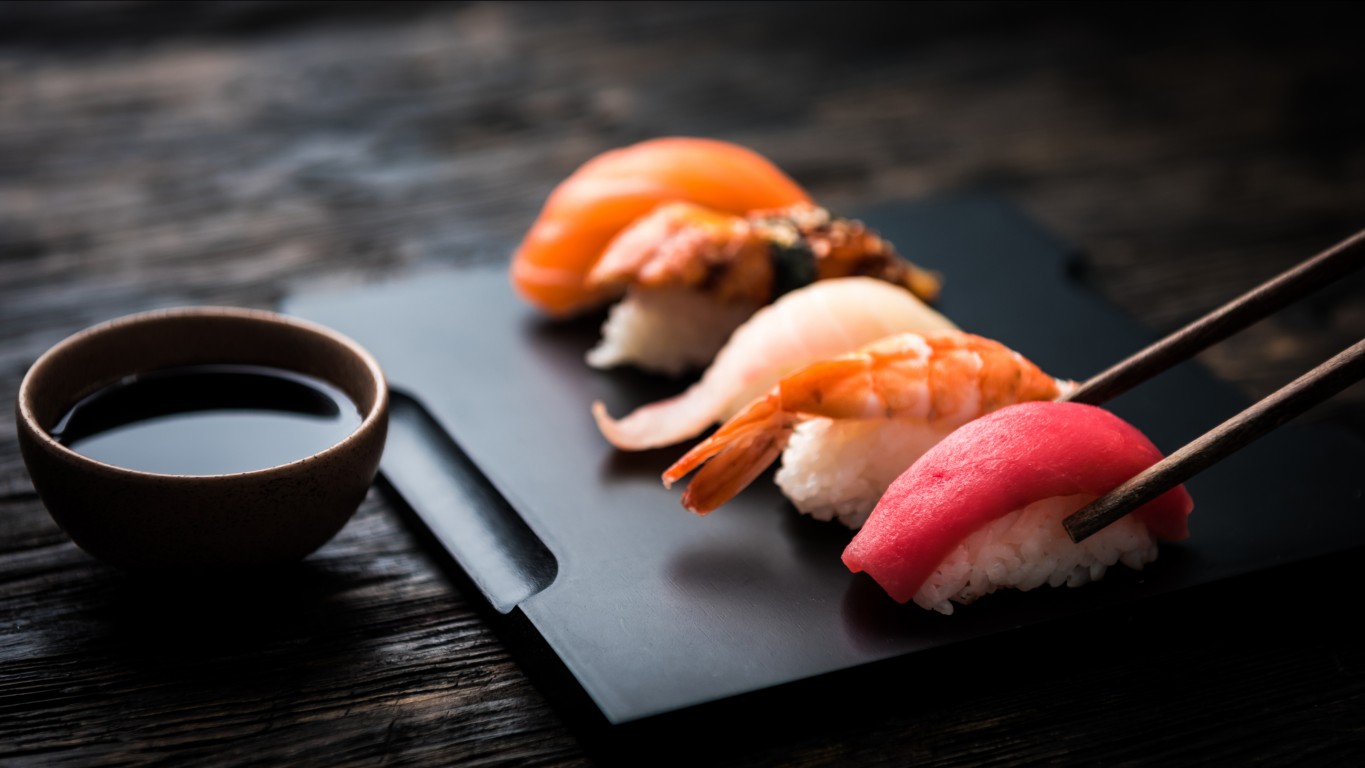
Sushi
Not only is fish from sushi delivery joints often mislabeled — so your tuna may actually be swordfish that’s high in mercury — it’s also a health risk if it’s been at room temperature for too long. Do yourself a favor and only order sushi if you’re dining in at a restaurant with ethical, transparent sourcing.
[in-text-ad]

Eggs
Eggs from fast food and delivery joints are often poured from a carton of liquid that contains multiple additives and stabilizers. Even if the eggs are real, it’s likely they are microwaved rather than fried or poached.

Meatball Subs
There’s just no way to keep these saucy sandwiches from getting soggy.

Steak
The best part of eating steak is taking that first hot bite, with crispy edges and fat that melts in your mouth. There’s no way to experience that if you order steak for delivery. The meat will likely be lukewarm and chewy, and the fat congealed.
[in-text-ad-2]

Tuna salad sandwiches
Not only can tuna salad go bad quickly if not kept refrigerated, it’s also not the most popular menu item, so a tub of tuna salad may sit around for days or even weeks before a new batch is made.

Nachos or crunchy tacos
Unless you order them disassembled with chips or shells on the side, these are guaranteed to be a soggy mess.
[in-text-ad]

Cheeseburgers
Because the quality of most delivery joints’ meat may be questionable at best, you never want to order a medium-rare burger for delivery. The alternative is a fully cooked patty that will likely be cold with congealed cheese on top by the time it hits your doorstep.

Smoothies
There’s a reason ice cream shops don’t deliver. Not only do smoothies melt quickly, they’re not the healthy option they’re touted to be. Smoothies are often loaded with added sugar and dairy.

French Fries
In addition to cold french fries being dry and unappetizing, the low quality oils that most delivery joints use in their fryers can leave you feeling sluggish and clog your pores.
[in-text-ad-2]

Rice Noodles
Rice noodles tend to get rock hard once they’re cool, or soak up all the liquid if they’re in soup or sauce. Either way, it’s best to eat these fresh.

Soup
Hot liquids are known to leach chemicals from plastic containers, and most delivery joints don’t use BPA-free plastic.
[in-text-ad]
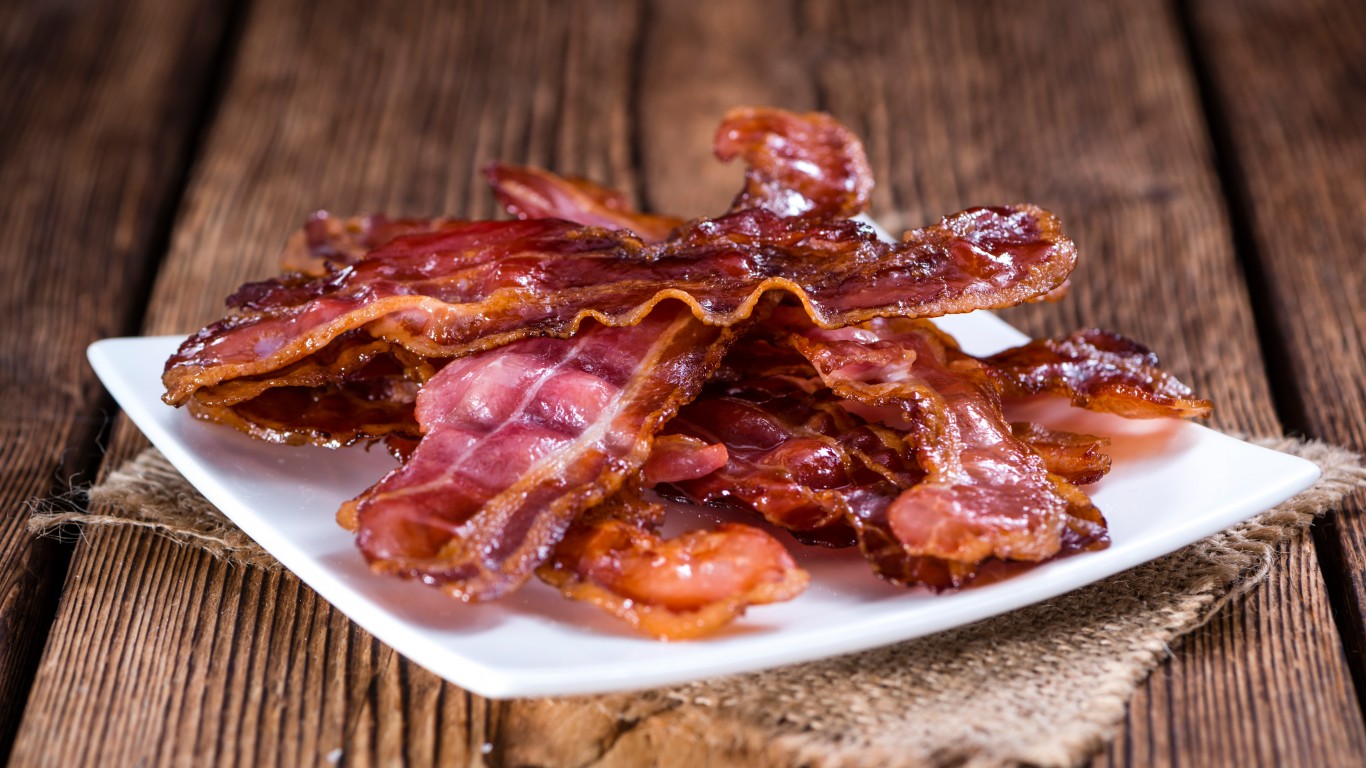
Bacon
Bacon is undeniably best fresh and hot. If it’s not cold and floppy, it’ll probably be cold and slightly burnt.
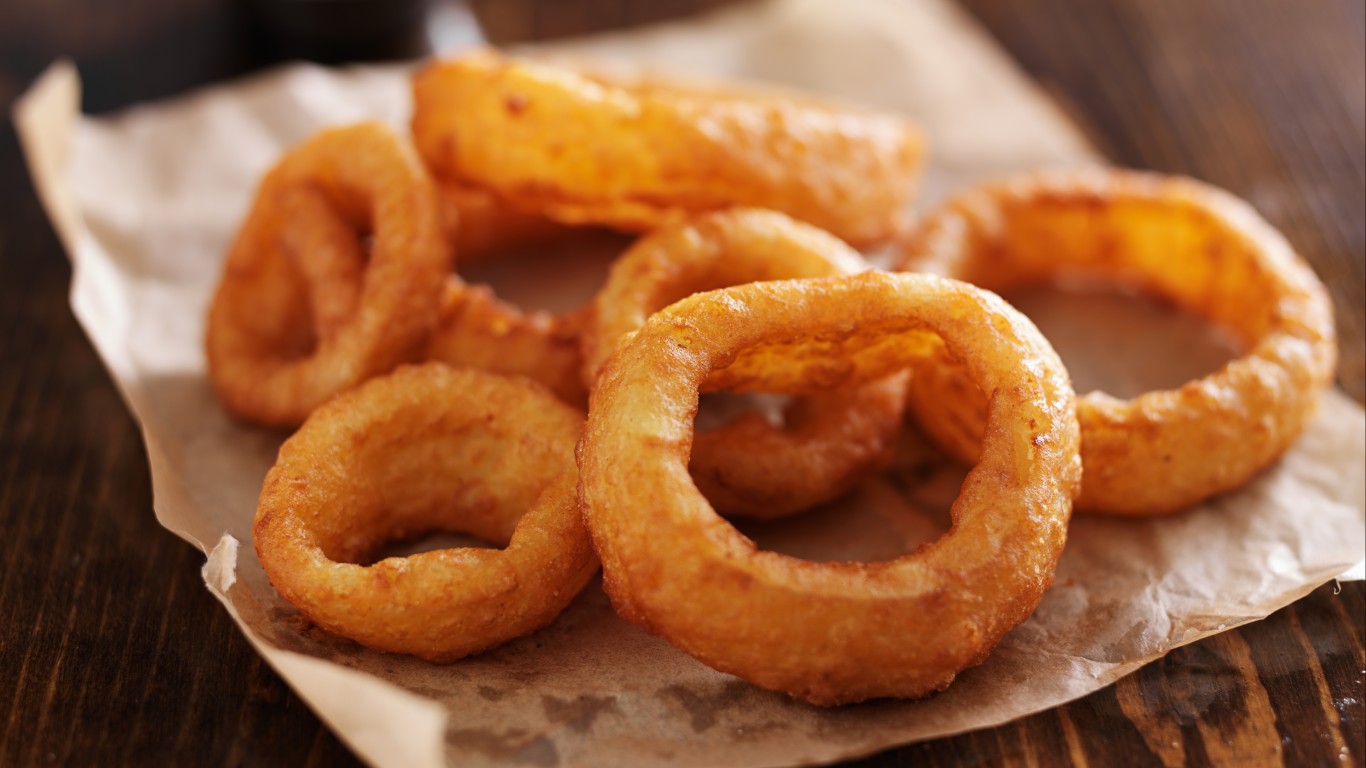
Onion Rings
Like most deep-fried foods, onion rings are delicious when they’re hot and crunchy. After sitting in a closed container for 15 minutes, however, the breading will be falling off of soggy, cold onions.
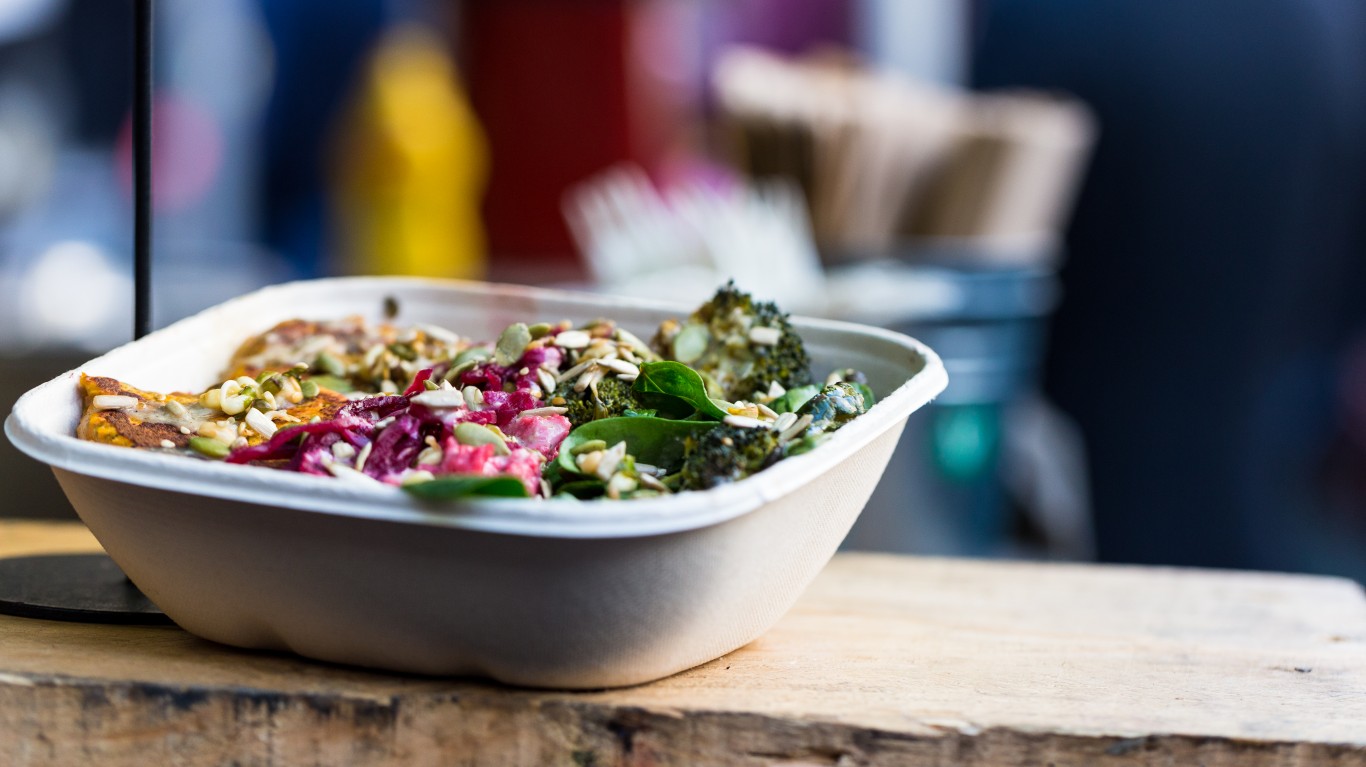
Salad
Salads are usually pre-made once or twice a week and sit in plastic containers until the toppings are added. Due to the moisture levels and the fact that they’ll be served raw, salad greens are a breeding ground for bacteria such as E. coli and salmonella.
[in-text-ad-2]

Chili
Often made from leftover beef patties that dried out under a heat lamp, or ground beef that needs to be cooked before it expires, chili is already a catch-all for old meat. Then, it moves from the fridge to the warmer for days, being reheated each morning.

Well-done steak
A steak well done is the perfect opportunity for the cook to use up the oldest piece of beef in the fridge, cooking it to a crisp to disguise the smell.
[in-text-ad]
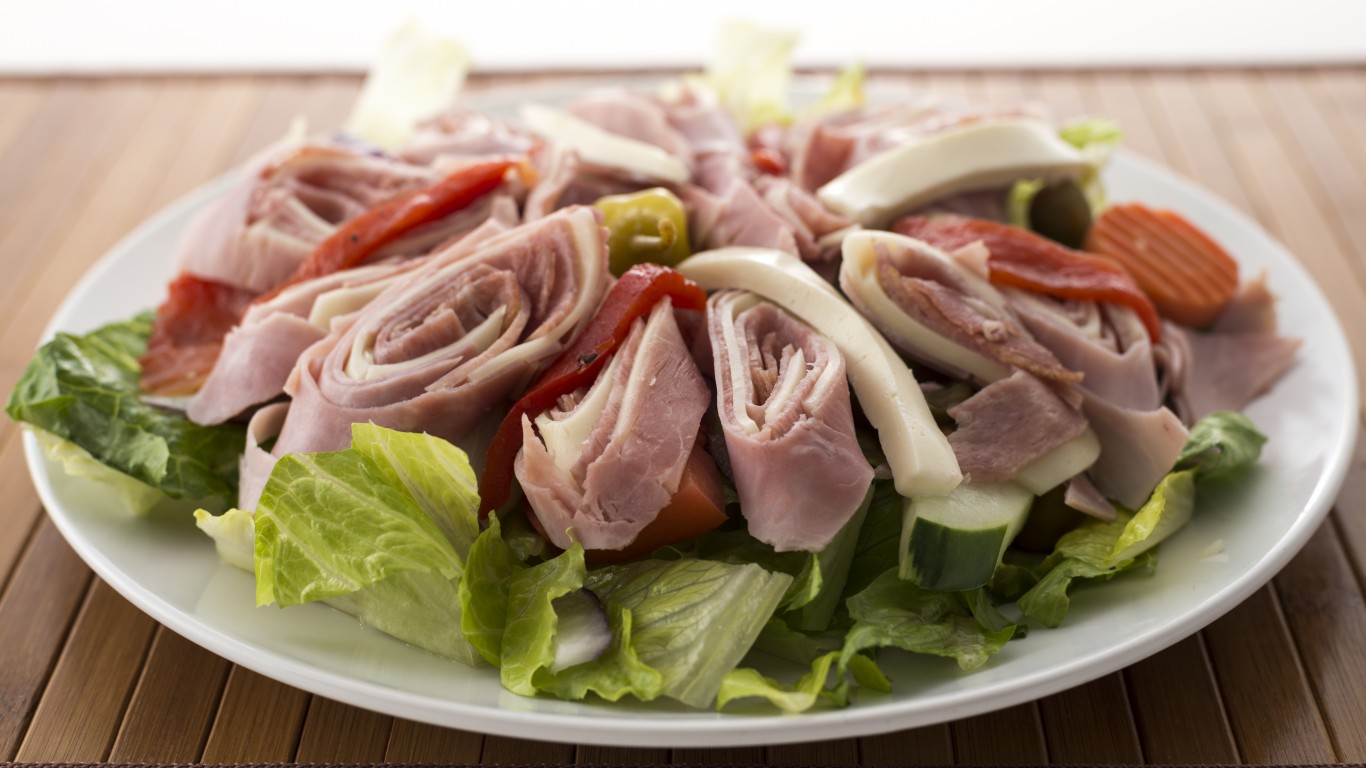
Antipasto salad
Italian dressing can be a clever mask for lunch meat and old cheese that have gone off but the establishment still wants to try and sell.

Anything with avocados
Everyone’s favorite toast topper oxidizes so quickly it’s likely to be brown by the time you receive it.

Ice
Ice machines are often full of mold unless they are cleaned regularly, and many restaurant employees admit that the machines are rarely cleaned.
[in-text-ad-2]

Veggie burgers
If you’re vegetarian, it may be exciting to see that veggie burgers are becoming more widely available at fast food establishments. What you may not have considered is that they will be taken from the freezer, microwaved, then finished on the same grill that’s used for meat.
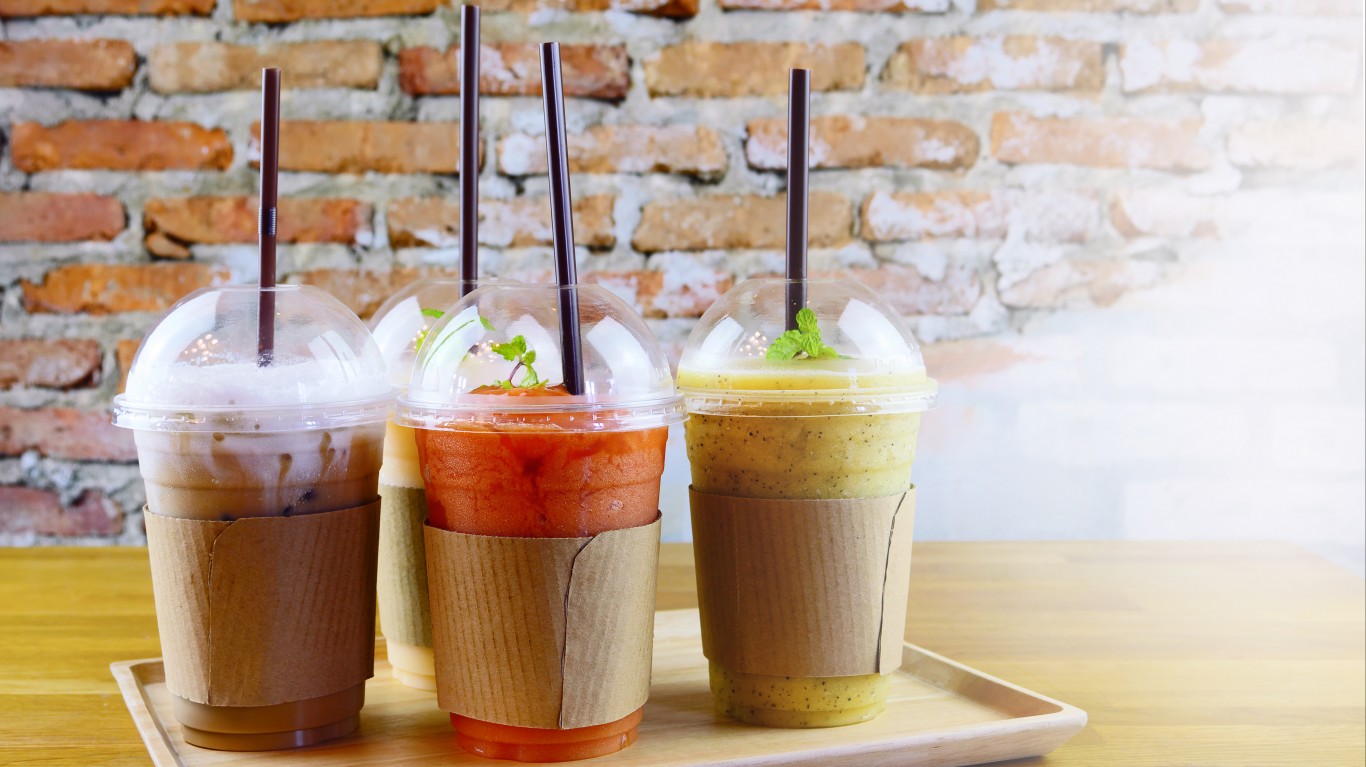
Frozen drinks
Like ice machines, frozen drink machines are very hard to keep clean and mold-free. Most places keep them running constantly and top off the drink mix without ever shutting them down for maintenance.
[in-text-ad]
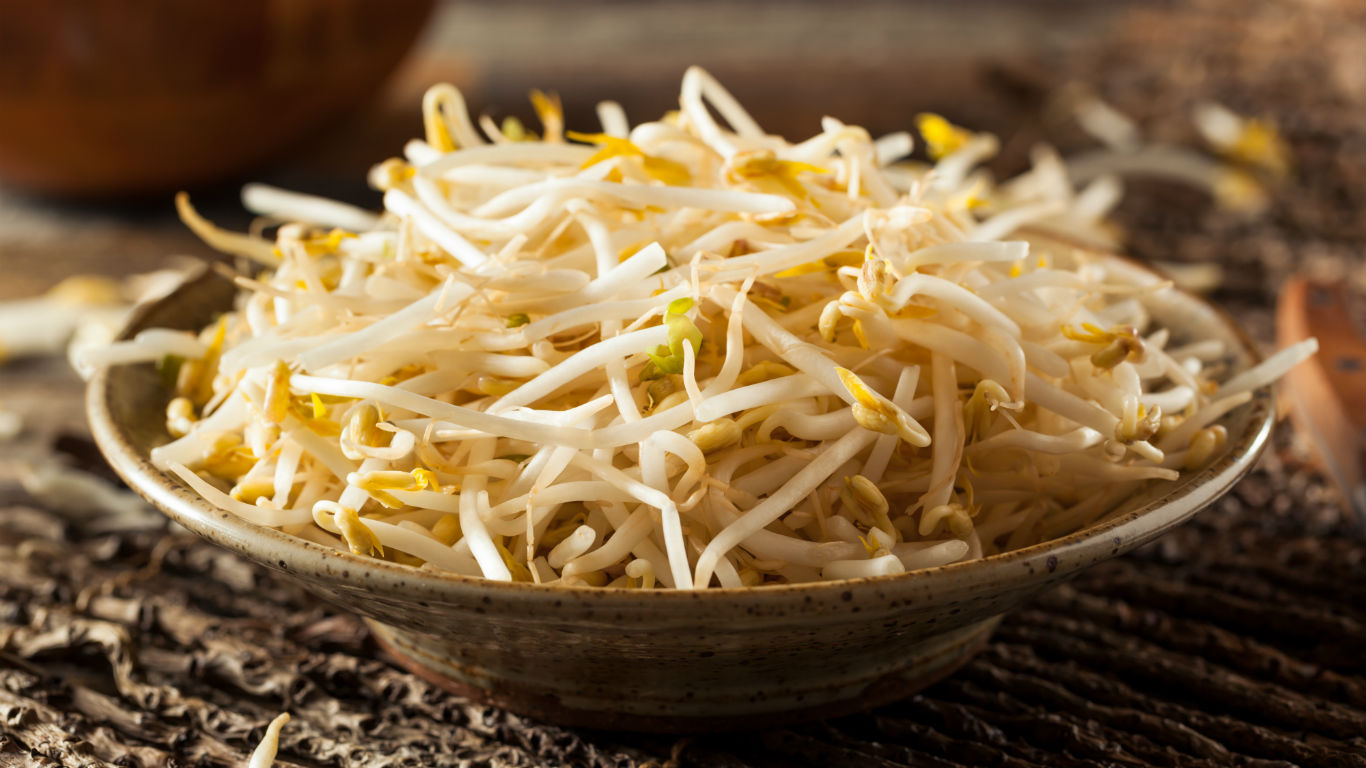
Sprouts
Sprouts are moist and uncooked – the perfect breeding ground for bacteria. In 2018, a multistate outbreak of salmonella at Jimmy John’s was linked to contaminated sprouts.

Fresh-squeezed juice
Fresh-squeezed juice may sound like a luxury but it can be a vector for bacteria because it is unpasteurized.
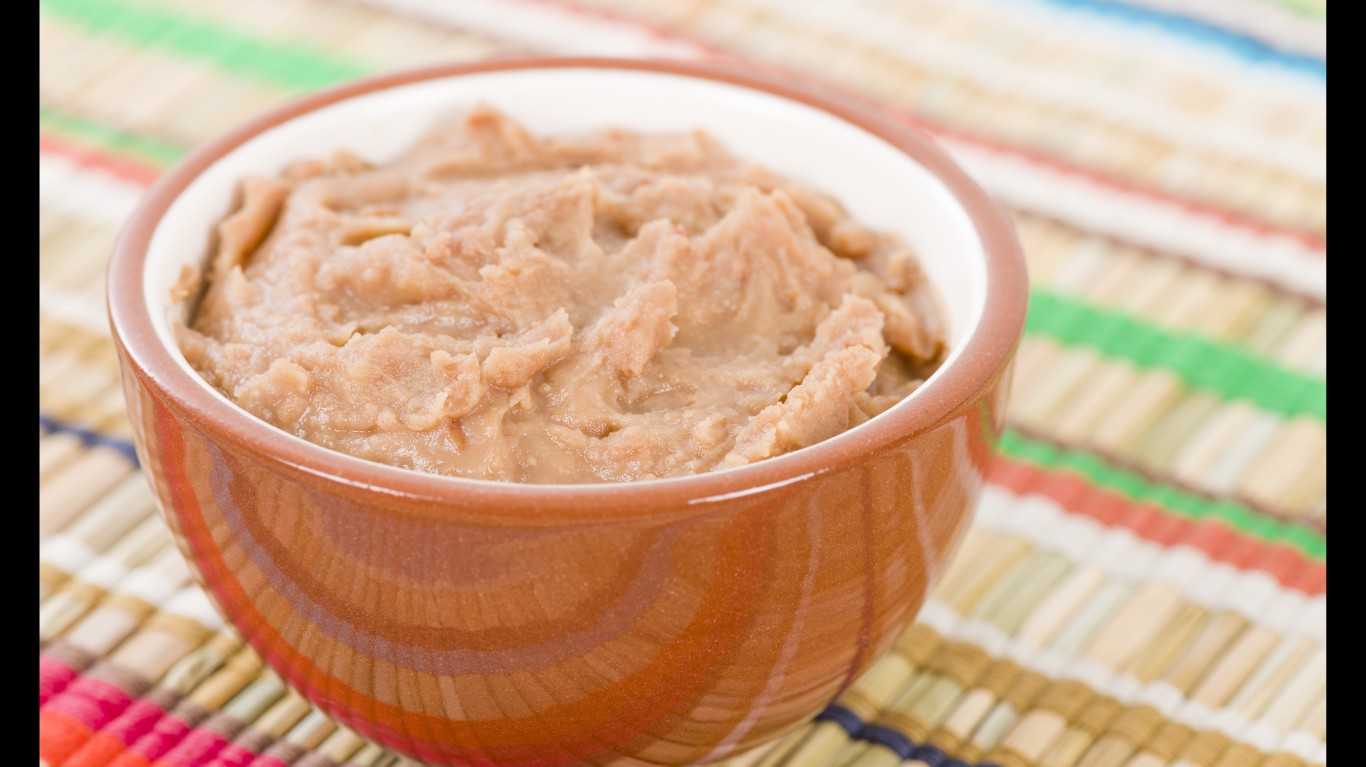
Refried beans
Refried beans are likely to be prepared in bulk and kept warm for serving. This can lead to bacterial growth that causes food poisoning if the beans aren’t heated to a high enough temperature to kill the bacteria.
[in-text-ad-2]
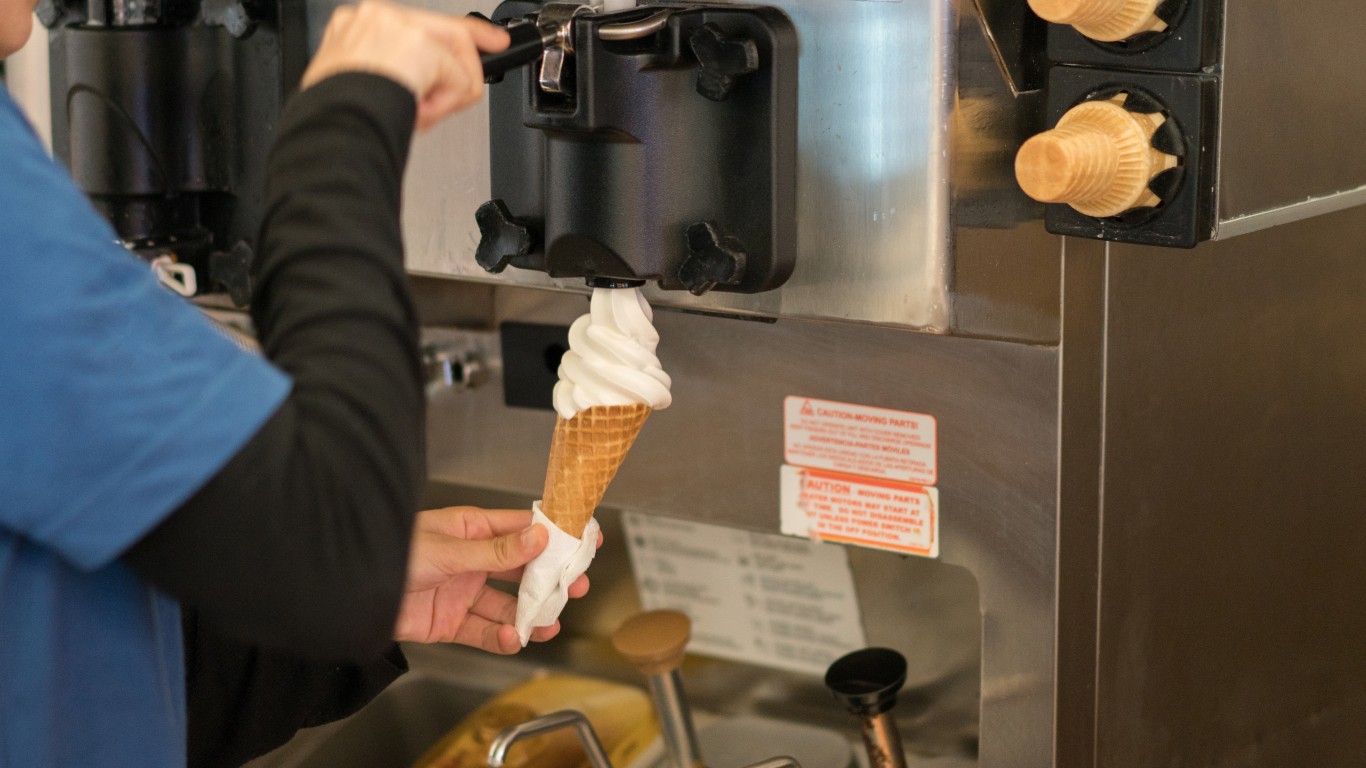
Soft-serve
Just like ice and frozen drink machines, soft-serve machines must be cleaned routinely or they will get moldy.

Hummus
Unless it’s from a place that specializes in hummus, this high-protein bean spread is likely to be days old and possibly full of bacteria.
[in-text-ad]

Deli meat sandwiches
A staple of delivery orders, deli meat sandwiches carry a high risk of food poisoning from various bacteria including listeria, which can infect meat in the processing plant, even when it’s kept refrigerated.

Fresh fruit salad
Fresh fruit salad may seem like a safe, healthy option when ordering delivery. Certain fruits, however, tend to carry bacteria, including listeria, that is hard to remove unless thoroughly washed. The fruit is then cut by hand and stored for multiple days without being cooked, increasing the risk of contamination.
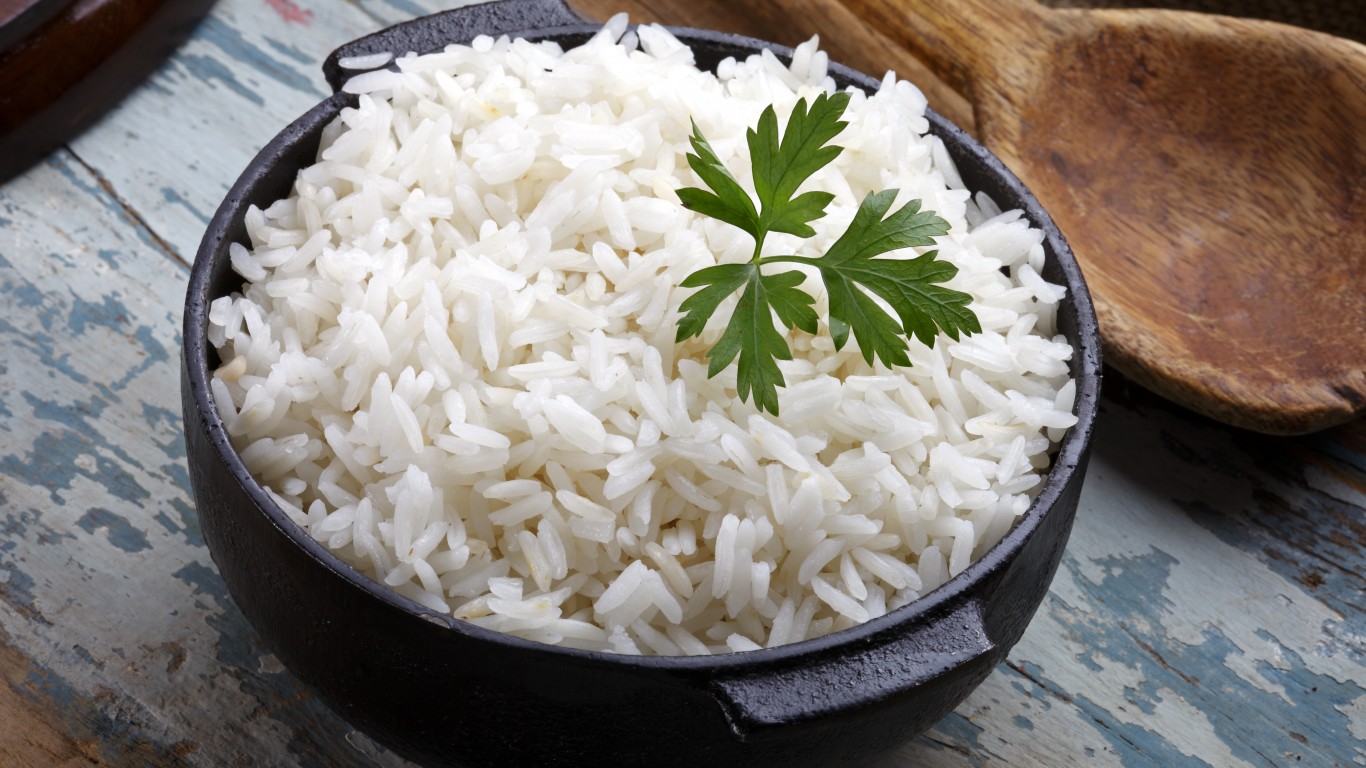
Rice
Unless rice is served immediately after cooking, it may cause food poisoning. Bacillus cereus spores, which are carried on dried rice straight from the field, can survive the heat of cooking. They’re not a problem if the rice is eaten right away, but if the cooked rice starts to cool and sits in a warming pot all day, the bacteria proliferate and can cause illness.
Are You Ahead, or Behind on Retirement? (sponsor)
If you’re one of the over 4 Million Americans set to retire this year, you may want to pay attention.
Finding a financial advisor who puts your interest first can be the difference between a rich retirement and barely getting by, and today it’s easier than ever. SmartAsset’s free tool matches you with up to three fiduciary financial advisors that serve your area in minutes. Each advisor has been carefully vetted, and must act in your best interests. Start your search now.
Don’t waste another minute; get started right here and help your retirement dreams become a retirement reality.
Thank you for reading! Have some feedback for us?
Contact the 24/7 Wall St. editorial team.
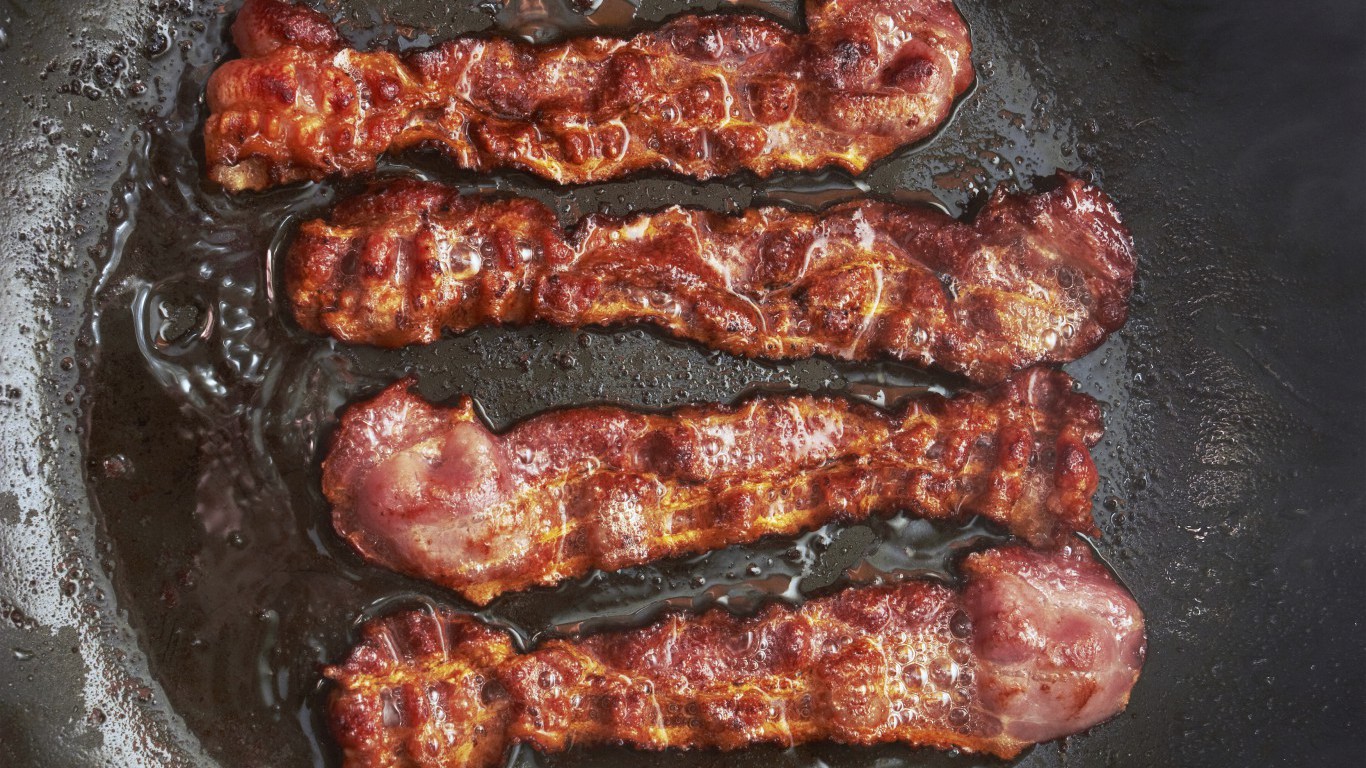 24/7 Wall St.
24/7 Wall St.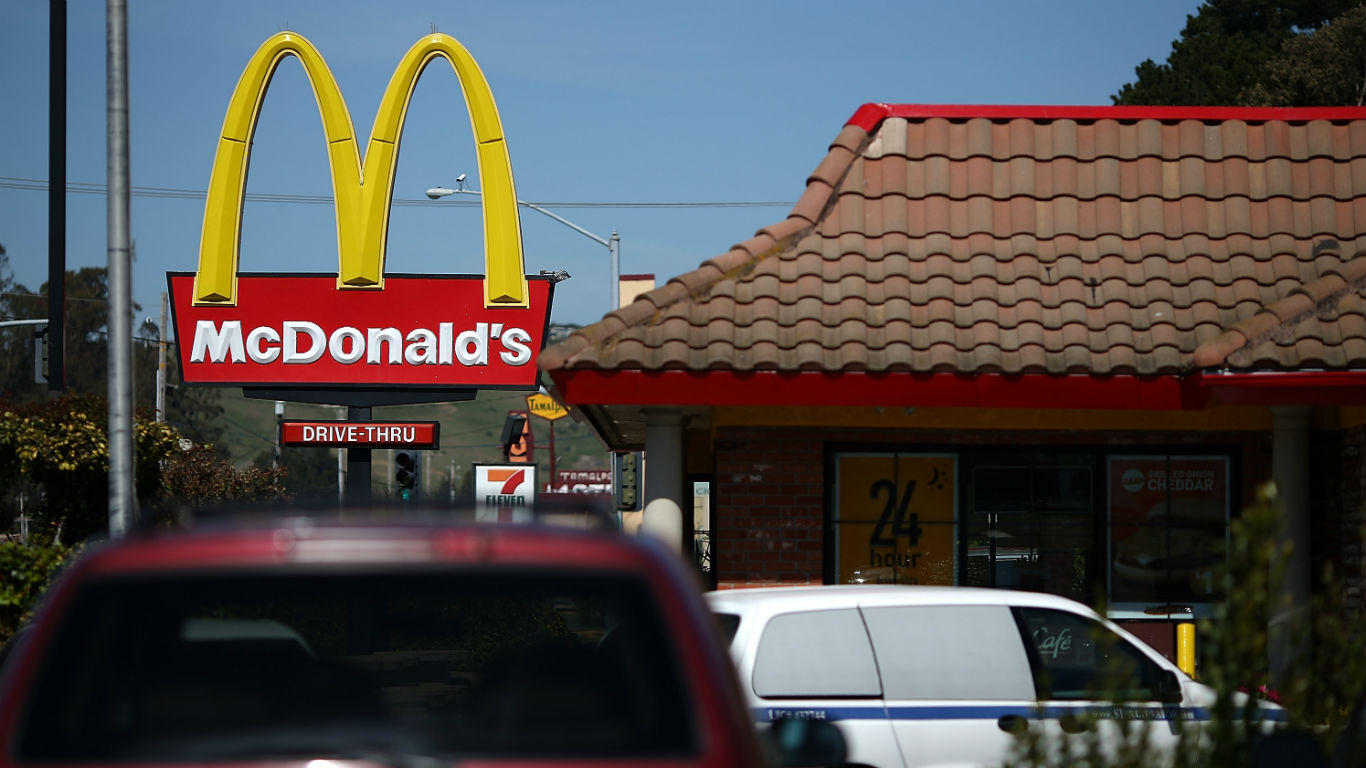 24/7 Wall St.
24/7 Wall St. 24/7 Wall St.
24/7 Wall St.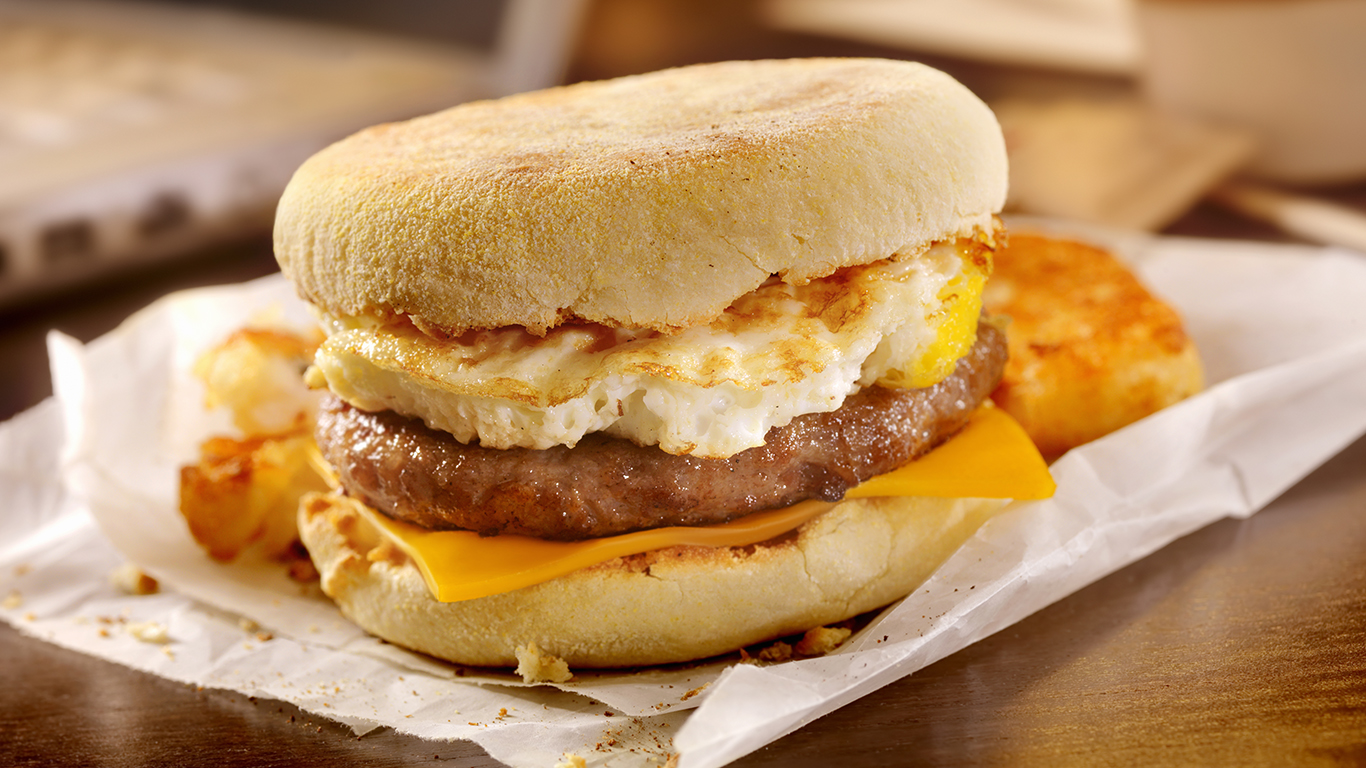 24/7 Wall St.
24/7 Wall St.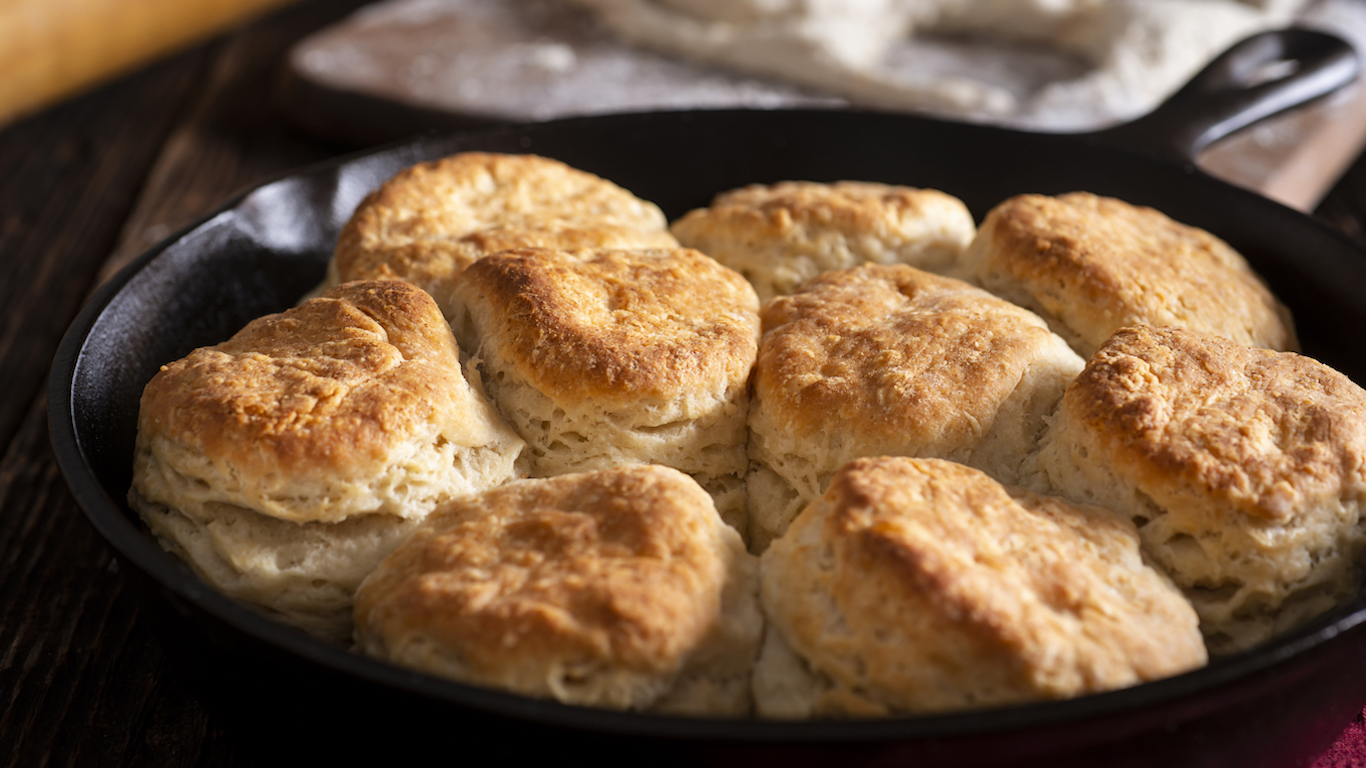 24/7 Wall St.
24/7 Wall St.